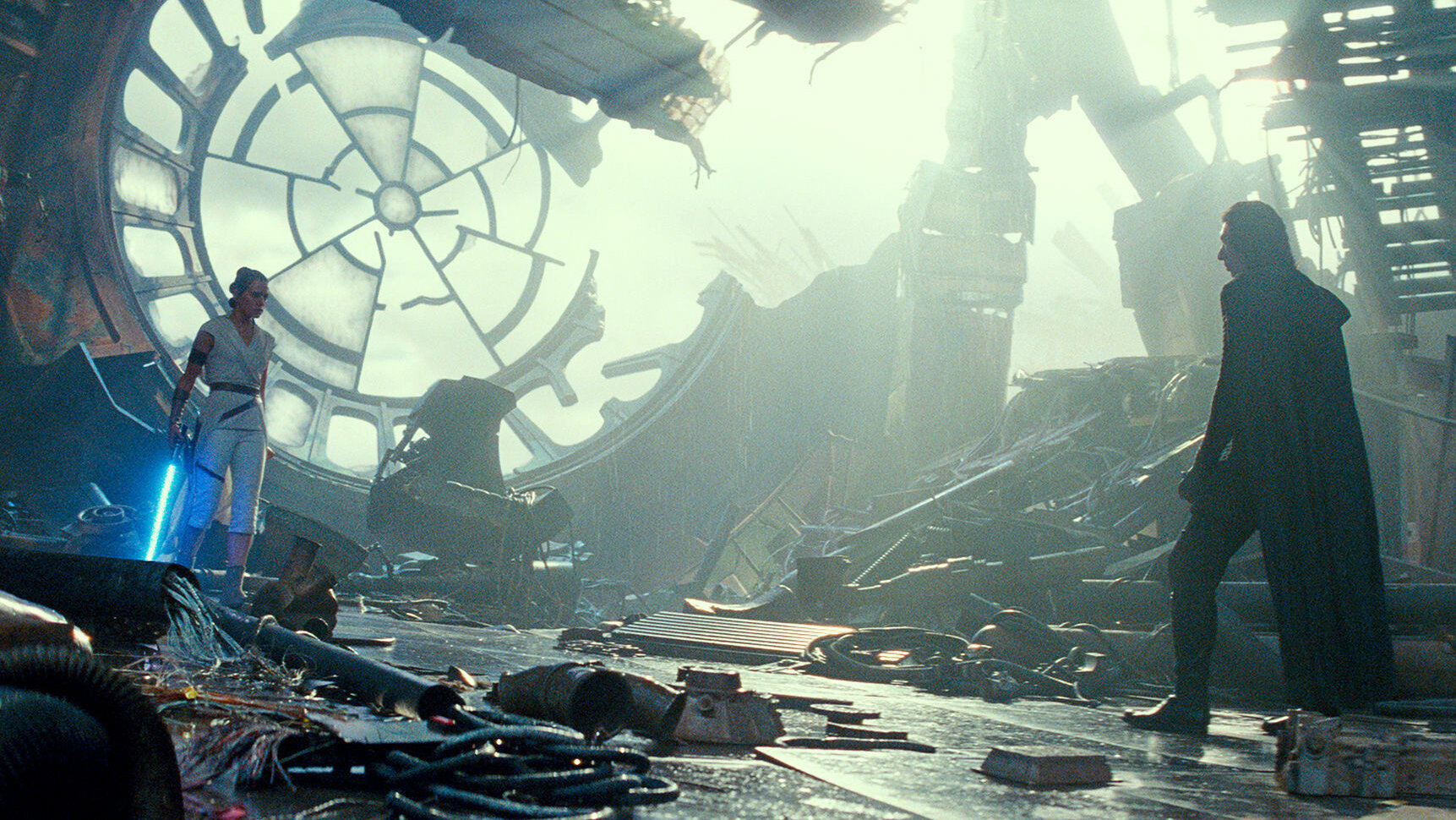Review: ‘Star Wars: The Rise of Skywalker’ Presents an Existential Identity Crisis for the Galaxy Far Far Away
“People keep telling me they know me . . . no one does.”
Spanning forty-two years of human development and embedding itself into the very fabric of American society, Star Wars is as pervasive as any cultural artifact can get, and as such, everyone has an opinion on it. Two years ago, those opinions could be heard clear across the galaxy with Rian Johnson’s The Last Jedi. Blowing a hole in the internet ten miles wide and dividing the fandom in two, everyone was talking this film. Your friends, your coworkers, your parents. Literally everyone had something to say about this movie, either singing its praises or lambasting its gall.
Whether or not you like the film (as I had issue with here), The Last Jedi was a shake up the franchise needed. Between the long hated prequels and the nostalgic rehash that was The Force Awakens, Star Wars itself needed to let go of the past if it wanted a future, and the phase “Let the past die” couldn’t have bee more relevant. But the conversational divide initiated by Johnson’s film was loud enough to penetrate the boardroom at the Walt Disney Corporation and stoke unease from studio execs.
Fearing fan backlash and the most unholy of them all, diminishing profits *gasp*, Disney reacted. And poorly at that. In an effort to appease fans and temper sentiments, Disney seemingly entered full on damage control with the final installment in the Skywalker saga, containing what can only be described as shameless course ‘correction.’ It’s the cinematic equivalent of oversteering your car when it fishtails, crashing into the center divide, and bringing twenty other cars into the pile up with you. Star Wars: The Rise of Skywalker is a ghastly nightmare of reactionary fan appeal and poor cinematic filmmaking. Where endless doors were opened with Johnson’s effort, director J.J. Abrams decides to close them and revel in the familiar. He finds solace in nostalgic rehashes, nonsensical narratives, and the cardinal sin of them all, pointless fan service brought on by abhorrent discourse.
The story is as follows. The Resistance has their backs against the wall . . . again. With few resources left, their last hope resides in a few final fighters: Finn, Poe, and Rey (John Boyega, Oscar Isaac, and Dailey Ridley respectively). Out of the blue, they receive a message from a First Order spy that the sinister Emperor Palpatine is back and plans to wipe out the galaxy in twenty-four hours. With time on the clock, the trio embarks on a journey to save the galaxy and wipe out ‘The Final Order’ . . . again.
There are many, many things wrong with The Rise of Skywalker, but none are as upsetting as the pandering. Abrams and screenwriter Chris Terrio — who I might add is responsible for writing Batman v Superman AND Justice League — are directly confronting criticisms from The Last Jedi with the hopes of winning over the fan base. And that right there is really the entire problem with The Rise of Skywalker. Rose Tico is all but removed from the film. Holdo’s light speed maneuver is delegitimized. Throwing a lightsaber is now treacherous. And worst of them all: Rey’s lineage now matters.
Say what you will about Johnson’s film, but the best part was the notion that anyone could be a jedi. When Rey found out her parents were nobodies, that was cool. The final shot of a young broom boy looking up at the stars actually made you feel like the series was lowering its garden walls and permitting those without midichlorians or the Skywalker name to be apart of it. But no more. The sole identity of Star Wars — it seems — is exclusively relegated to space cavaliers and family lineage.
So much of the film is concerned with ‘righting the wrongs’ of the prior film that it loses all grasp on its ability to vindicate its assertion. Break neck pacing makes the first half an incoherent and stunted visual whiplash dependent on glossy visuals in the hopes you forget about all the nonsense taking place on screen. Tropes forged by nine mainline films — plus the bevy of films taking inspiration from George Lucas’ brainchild — make The Rise of Skywalker a woefully familiar retread, particularly with regards to Return of the Jedi. And the film truly does not work within the framework of a narrative trilogy arc.
It’s almost unfathomable that Kathleen Kennedy and Lucasfilm didn’t plot out a multi-billion dollar franchise from the start. The see-sawing between The Force Awakens to The Last Jedi to The Rise of Skywalker is actually insane when you think about the individual direction of each film. Each entry is pulling itself in its own direction, doing something entirely on its own, and trying to forge an identity for a franchise whose evergreen status as a moneymaker is now being called into question.
What this franchise means anymore is anyone’s best guess. What is certain is that Star Wars is nothing more than a corporate vehicle of dollars and cents with little artistic value left. To think any rational person is excited for a new Star Wars movie is a stretch of the imagination and one predicated on liking films made forty years ago. There is no direction with this series. What Star Wars is and should be is enigmatic, confusing, and left to the pontificating fandom to decide. Star Wars fans are probably meant to suffer for the rest of eternity, and frankly, they deserve it.
—


